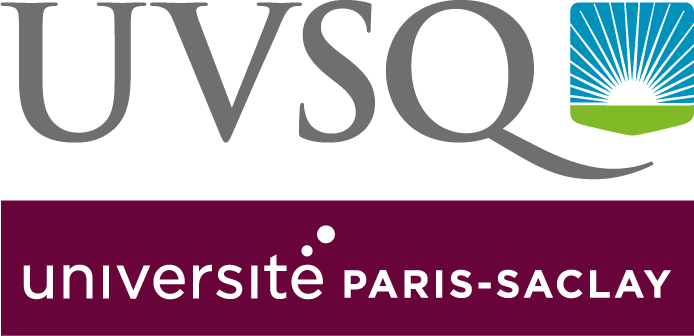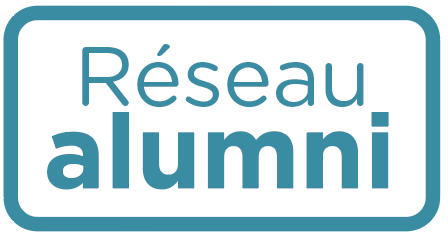Vous êtes ici : UVSQ RechercheDoctorat
- Partager cette page :
- Version PDF
"Production et usages sociaux de l'électricité dans les Asturies (1880-1936)" par Monsieur Daniel Perez Zapico
Discipline : Histoire des sciences et des techniques, laboratoire : CHCSC-Centre d'Histoire Culturelle des Sociétés Contemporaines
le 5 février 2016
vendredi 5 février 2016 à 10h00
Universidad de Oviedo
Salon de Grados del Departamento de Historia
Facultad de Filosofia y Letras
S/n, rue Teniente Alfonso Martinez
33011 Oviedo, Asturias, Espagne
Salon de Grados del Departamento de Historia
Facultad de Filosofia y Letras
S/n, rue Teniente Alfonso Martinez
33011 Oviedo, Asturias, Espagne
Résumé :
A la fin du XIXe siècle, le fluide électrique a été responsable des transformations profondes dans la vie quotidienne de la société asturienne, qu'incluaient, par exemple, des nouvelles formes d'organiser le temps social, de planifier le travail et les loisirs. L'électricité a consacré la rupture dans la séparation rigide entre la nuit et le jour qui existait avant de son apparition, et s'est révélée comme le meilleur moyen d'éclairage en surpassant aux huiles végétales ou minérales et au gaz d'éclairage. L'électricité alors est devenue une image symbolique du progrès et sa brillante lumière a commencé à conquérir l'espace public, l’espace de travail et même le domaine privé, comme une métaphore du triomphe de la société moderne industrielle et en induisant des modifications dans les habitudes et les coutumes. Ce qui est proposé avec cette étude c’est, par conséquent, un projet de recherche capable d'établir les commencements et le premier développement de l'industrie électrique dans les Asturies, comme contribution générale à l'étude du processus espagnol d'électrification. Cette étude essaie également de déployer une ample vision dans l'analyse, capable d'intégrer les multiples facettes et les implications du phénomène. Surtout, il y aura une attention spéciale aux approches socioculturelles du phénomène électrique, comme ceux qui se rattachent aux loisirs, à la divulgation de l'électricité, l'électricité et les espaces de représentation urbaines, l’imaginaire et les représentations de cette énergie ou à l'électricité et la vie quotidienne ou l'espace domestique. Bref, il s'agit de développer une vraie histoire sociale et culturelle de l'électricité, de ses représentations et ses pratiques à partir en utilisant les Asturies, cette région espagnole, comme laboratoire pour analyser l'interaction mutuelle entre techniques, société et culture.
Abstract :
At the end of the 19th century, the electricity has been responsible for deep modifications in the daily life of the Asturian society that included, for example, new forms of organizing the social time or planning the paces of work and leisure. Electricity establishes the break in the rigid separation between night and day which existed prior to its appearance, and proved itself as the best way of lighting in surpassing other technologies as mineral or vegetable oils and gas lighting. The electricity then became a symbolic image of progress and its brilliant light began to conquer the public space, the workspace and even the private sphere, as a metaphor for the triumph of modern industrial society and by inducing changes in habits and traditions. What comes with this study is, therefore, a research project capable of establishing the beginnings and the first development of the electric industry in Asturias, a peripheral region in Spain, as a general contribution to the study of the Spanish electrification process. This study also tries to deploy a broad vision in the analysis, capable of integrating the many implications of the phenomenon. Above all, there is special attention to the socio-cultural approaches to the electrical phenomenon, such as those which relate to the leisure and the sociability, to the cultural outreach of electricity, electricity and urban spaces of representation, the imaginary of this energy or the relations between electricity, and everyday life or the domestic sphere. In short, it is to develop a true social and cultural history of electricity, its representations and practices from using Asturias, this Spanish region, as a laboratory to analyze the mutual interaction between technology, society and culture.
Abstract :
At the end of the 19th century, the electricity has been responsible for deep modifications in the daily life of the Asturian society that included, for example, new forms of organizing the social time or planning the paces of work and leisure. Electricity establishes the break in the rigid separation between night and day which existed prior to its appearance, and proved itself as the best way of lighting in surpassing other technologies as mineral or vegetable oils and gas lighting. The electricity then became a symbolic image of progress and its brilliant light began to conquer the public space, the workspace and even the private sphere, as a metaphor for the triumph of modern industrial society and by inducing changes in habits and traditions. What comes with this study is, therefore, a research project capable of establishing the beginnings and the first development of the electric industry in Asturias, a peripheral region in Spain, as a general contribution to the study of the Spanish electrification process. This study also tries to deploy a broad vision in the analysis, capable of integrating the many implications of the phenomenon. Above all, there is special attention to the socio-cultural approaches to the electrical phenomenon, such as those which relate to the leisure and the sociability, to the cultural outreach of electricity, electricity and urban spaces of representation, the imaginary of this energy or the relations between electricity, and everyday life or the domestic sphere. In short, it is to develop a true social and cultural history of electricity, its representations and practices from using Asturias, this Spanish region, as a laboratory to analyze the mutual interaction between technology, society and culture.
Informations complémentaires
Francisco Manuel ERICE SEBARES, Professeur habilité, à l’Université de Oviedo, Espagne - Examinateur
Jean-Louis GUERENA, Professeur des Universités, à l’Université François-Rabelais, Tours - Examinateur
Jorge MUÑIZ SÁNCHEZ, Professeur habilité, à l’Universitaria de Magisterio Padre Enrique Osso, Espagne – Examinateur
Jean-Louis GUERENA, Professeur des Universités, à l’Université François-Rabelais, Tours - Examinateur
Jorge MUÑIZ SÁNCHEZ, Professeur habilité, à l’Universitaria de Magisterio Padre Enrique Osso, Espagne – Examinateur
Contact :
DREDVal Service FED : theses@uvsq.fr









 Etudiants
Etudiants